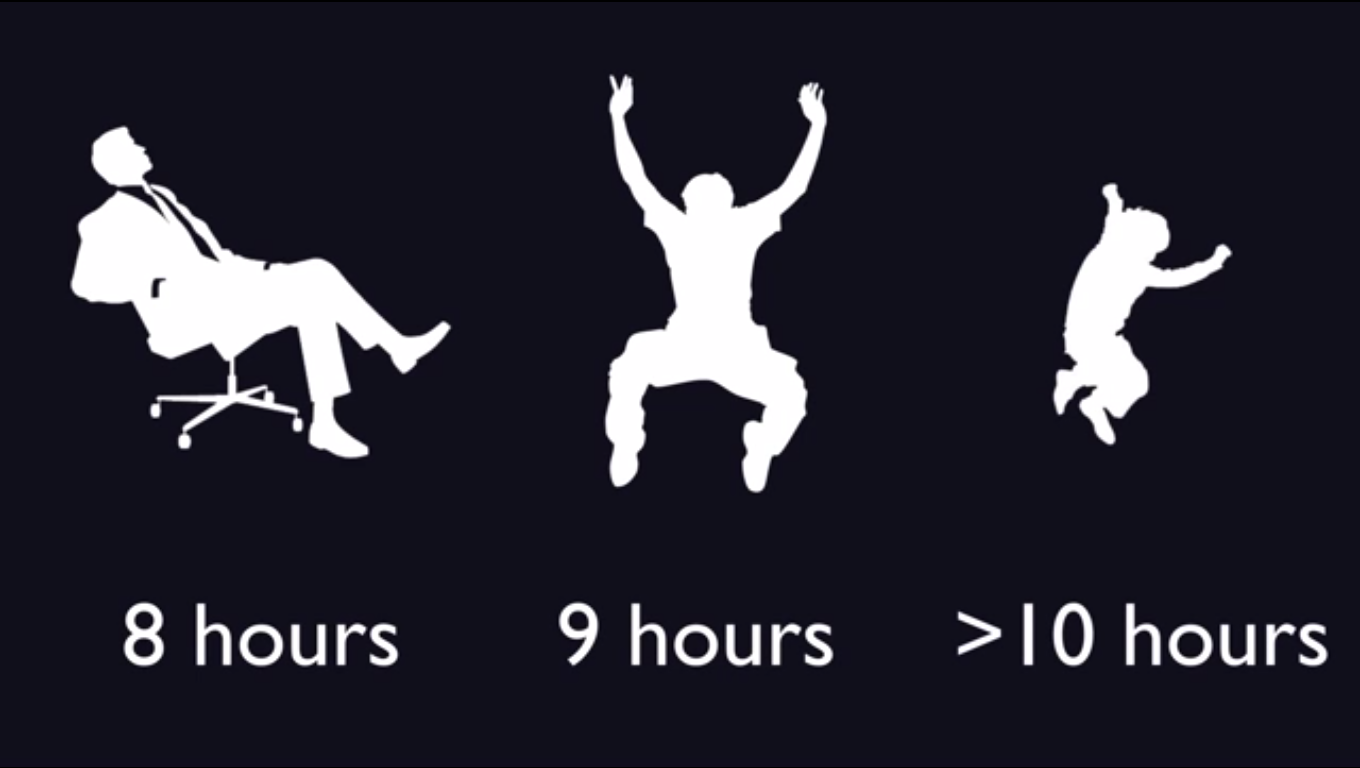Sleep
We spend a ⅓ th of our lives doing it.still isn't clear why we need sleep.
Thomas Edison claimed it was waste of time.
Why do we sleep? -An Unanswerable Question
So why do we sleep? This is a question that has baffled scientists for centuries and the answer is, no one is really sure. Some believe that sleep gives the body a chance to recuperate from the day's activities but in reality, the amount of energy saved by sleeping for even eight hours is miniscule - about 50 kCal, the same amount of energy in a piece of toast.
We have to sleep because it is essential to maintaining normal levels of cognitive skills such as speech, memory, innovative and flexible thinking. In other words, sleep plays a significant role in brain development.
What would happen if we didn't sleep?
A good way to understand the role of sleep is to look at what would happen if we didn't sleep. Lack of sleep has serious effects on our brain's ability to function. If you've ever pulled an all-nighter, you'll be familiar with the following after-effects: grumpiness, grogginess, irritability and forgetfulness. After just one night without sleep, concentration becomes more difficult and attention span shortens considerably.
With continued lack of sufficient sleep, the part of the brain that controls language, memory, planning and sense of time is severely affected, practically shutting down. In fact, 17 hours of sustained wakefulness leads to a decrease in performance equivalent to a blood alcohol level of 0.05% (two glasses of wine) so you are drunk without drinking
watch the video below to understand better
What happens when we sleep?
What happens every time we get a bit of shut eye? Sleep occurs in a recurring cycle of 90 to 110 minutes and is divided into two categories:
1)Non-rapid eye movement (non-REM)sleep ( which is further split into four stages)
2)Rapid eye movement (REM)sleep
Non-REM sleep
Stage one: Light Sleep
During the first stage of sleep, we're half awake and half asleep. Our muscle activity slows down and slight twitching may occur. This is a period of light sleep, meaning we can be awakened easily at this stage.
Stage two: True Sleep
Within ten minutes of light sleep, we enter stage two, which lasts around 20 minutes. The breathing pattern and heart rate start to slow down. This period accounts for the largest part of human sleep.
Stages three and four: Deep Sleep
During stage three, the brain begins to produce delta waves, a type of wave that is large (high amplitude) and slow (low frequency). Breathing and heart rate are at their lowest levels.
Stage four is characterised by rhythmic breathing and limited muscle activity. If we are awakened during deep sleep we do not adjust immediately and often feel groggy and disoriented for several minutes after waking up. Some children experience bed-wetting, night terrors, or sleepwalking during this stage.
REM sleep
The first rapid eye movement (REM) period usually begins about 70 to 90 minutes after we fall asleep. We have around three to five REM episodes a night.
Although we are not conscious, the brain is very active - often more so than when we are awake. This is the period when most dreams occur. Our eyes dart around (hence the name), our breathing rate and blood pressure rise. However, our bodies are effectively paralysed, said to be nature's way of preventing us from acting out our dreams.
After REM sleep, the whole cycle begins again.
How much sleep is required?
The average adult needs eight hours of sleep young adults in closer to nine and little children sleep much much longer 
Even animals require varied amounts of sleep:
Species
Average total sleep time per day
Python
18 hrs
Tiger
15.8 hrs
Cat
12.1 hrs
Chimpanzee
9.7 hrs
Sheep
3.8 hrs
African elephant
3.3 hrs
Giraffe
1.9 hr
Source: bbc.co.uk, Video Source : AsapSCIENCE (Youtube channel)
1)Non-rapid eye movement (non-REM)sleep ( which is further split into four stages)
How much sleep is required?
Species
|
Average total sleep time per day
|
Python
|
18 hrs
|
Tiger
|
15.8 hrs
|
Cat
|
12.1 hrs
|
Chimpanzee
|
9.7 hrs
|
Sheep
|
3.8 hrs
|
African elephant
|
3.3 hrs
|
Giraffe
|
1.9 hr
|

No comments:
Post a Comment